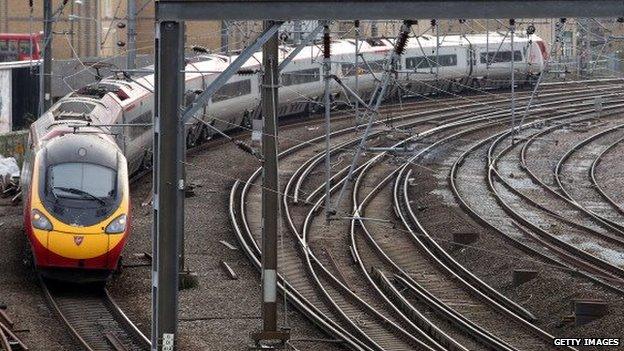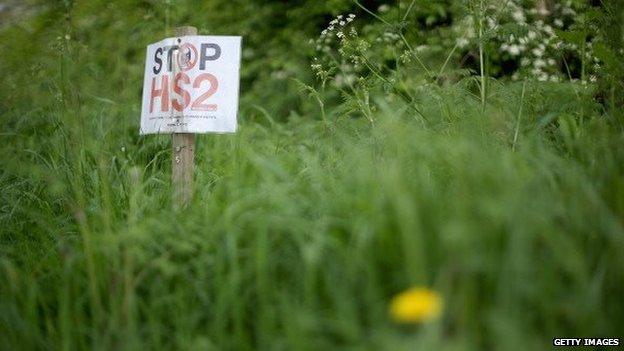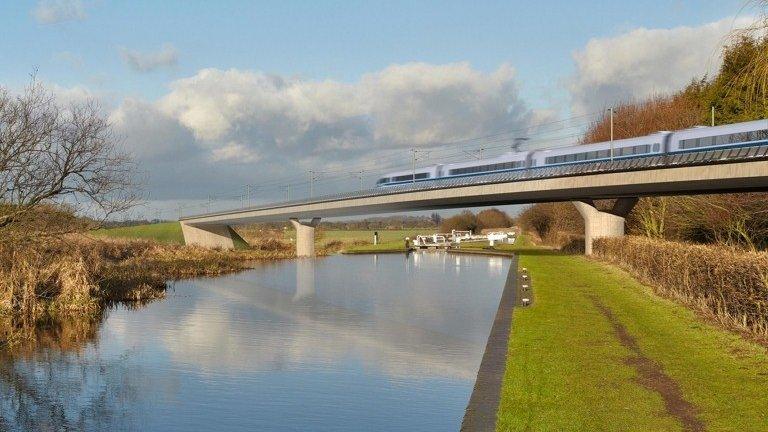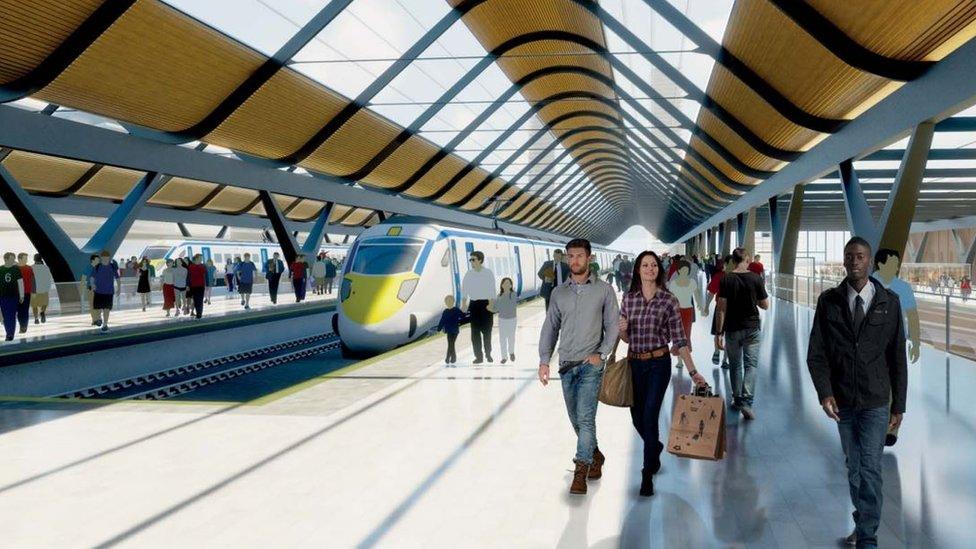HS2: Government has 'no convincing case' for £50bn rail line
- Published

HS2 would significantly cut rail journey times from London to Birmingham and Manchester
The government has no convincing case for spending £50bn building the HS2 rail link between London and the North, a report by the House of Lords Economic Affairs Committee says.
The government's main arguments in favour of HS2 - increasing railway capacity and rebalancing the economy - were still to be proven, peers said.
There are less-expensive options than HS2, they said on Wednesday.
A government spokesman said HS2 would deliver big benefits.
Lord Hollick, chairman of the Lords' committee, said overcrowding on the West Coast Main Line was largely a problem on commuter trains and on long-distance services on Friday nights and some weekends.
"The Government have not carried out a proper assessment of whether alternative ways of increasing capacity are more cost-effective than HS2," he said.
"In terms of rebalancing, London is likely to be the main beneficiary from HS2. Investment in improving rail links in the North of England might deliver much greater economic benefit at a fraction of the cost."
Committee member and Labour peer Lord McFall told Wake Up to Money on BBC Radio 5 live that the committee was not against HS2 in principle, but that the government needed a firmer transport strategy if it wanted to achieve its aim of rebalancing the economy.
"We're against the government initiating public projects at £50bn without adequate assessment against their objectives," he said.
"Can you imagine going forward with a project of this magnitude without a national transport strategy?" Lord McFall added.
"If we're going to rebalance the economy, then we must have a fundamental appraisal of the impact in the North, and that hasn't taken place to date,"
'Satisfactory answers'
Lord Hollick called on the Department for Transport to provide detailed answers to the questions set out by the committee.
"Parliament should not approve the enabling legislation that will allow HS2 work to begin until we have satisfactory answers to these key questions," he said.
The peer sets out arguments against the investment in a YouTube video, external.
A Department for Transport spokesman said the case for HS2 was "crystal clear" and claimed it would have a "transformational effect".
"It is a vital part of the government's long-term economic plan, strongly supported by Northern and Midland cities, alongside our plans for better east-west rail links confirmed in the Northern Transport Strategy last week.
"Demand for long distance rail travel has doubled in the past 15 years... it is crucial we press ahead with delivering HS2 on time and budget and we remain on track to start construction in 2017," the spokesman said.
'No blank cheque'
Shadow transport secretary Michael Dugher said that Labour supported HS2. However, he added: "It's vital that ministers win public confidence for this important investment and ensure that the economic benefits are felt as widely as possible. We have said there will be no blank cheque for the project under Labour."
Rhian Kelly, CBI director for business environment, said a modern railway was needed to deal with lack of capacity on the West Coast Mainline.
"HS2 will better connect eight of our 10 biggest cities, boosting local economies along and beyond the route together with complementary road and rail investment. It's vital we avoid any further delays to the project," she said.

The proposed route for HS2 has attracted protests from some residents
The Lords report echoed a similar report published by the Commons Public Accounts Committee in January.
The MPs said that ministers lacked a "clear strategic plan for the rail network" and were "sceptical" about whether HS2 would deliver value for money.
The £50bn price tag included a "generous contingency" that could be used to mask cost increases, they added.
The first phase of HS2 will be between London and Birmingham opening in 2026, followed by a V-shaped section to Manchester and Yorkshire.
It promises to reduce journey times between Birmingham and London from 81 minutes to 49 minutes, and slash the trip to Manchester by an hour to just 68 minutes.
- Published16 January 2015

- Published6 October 2023
